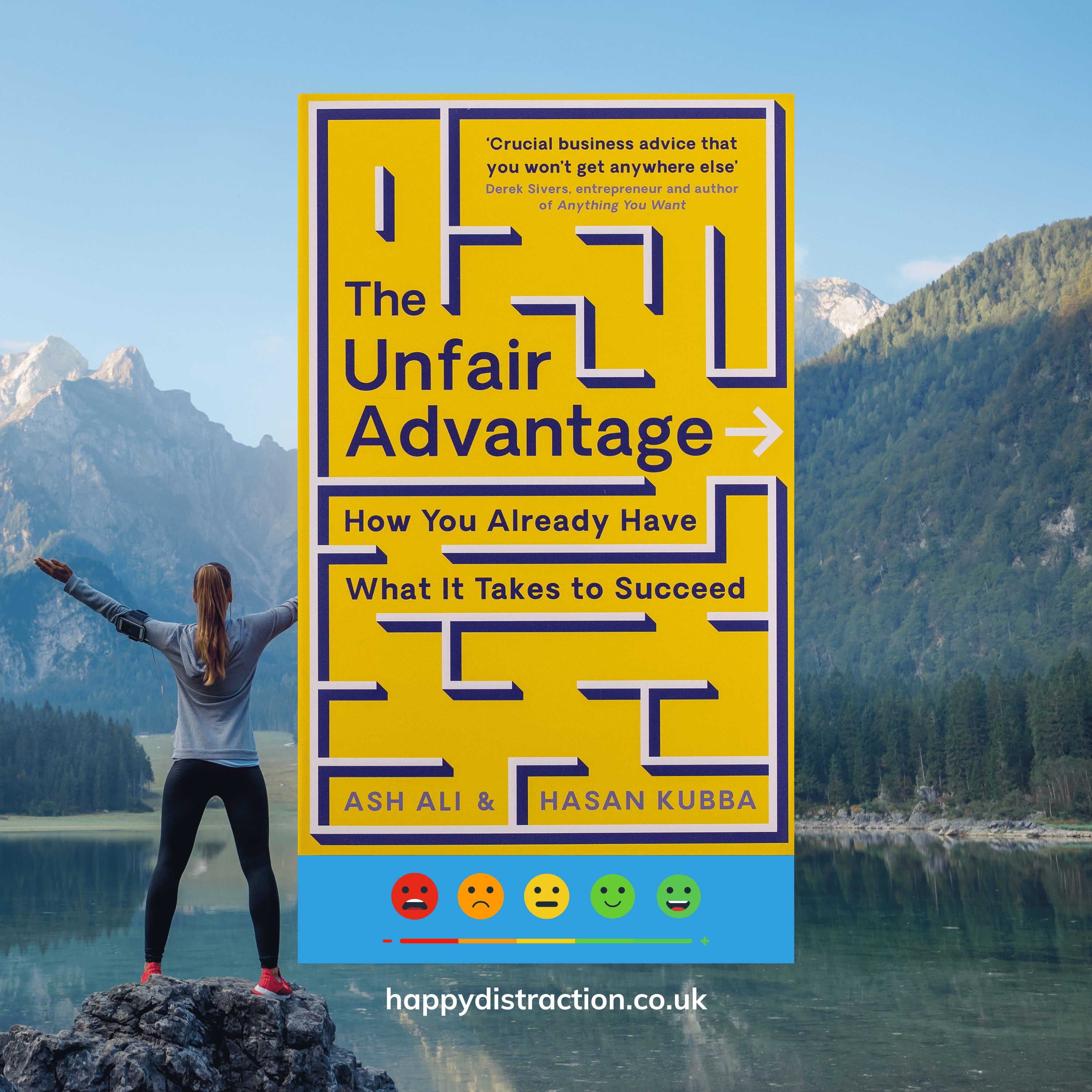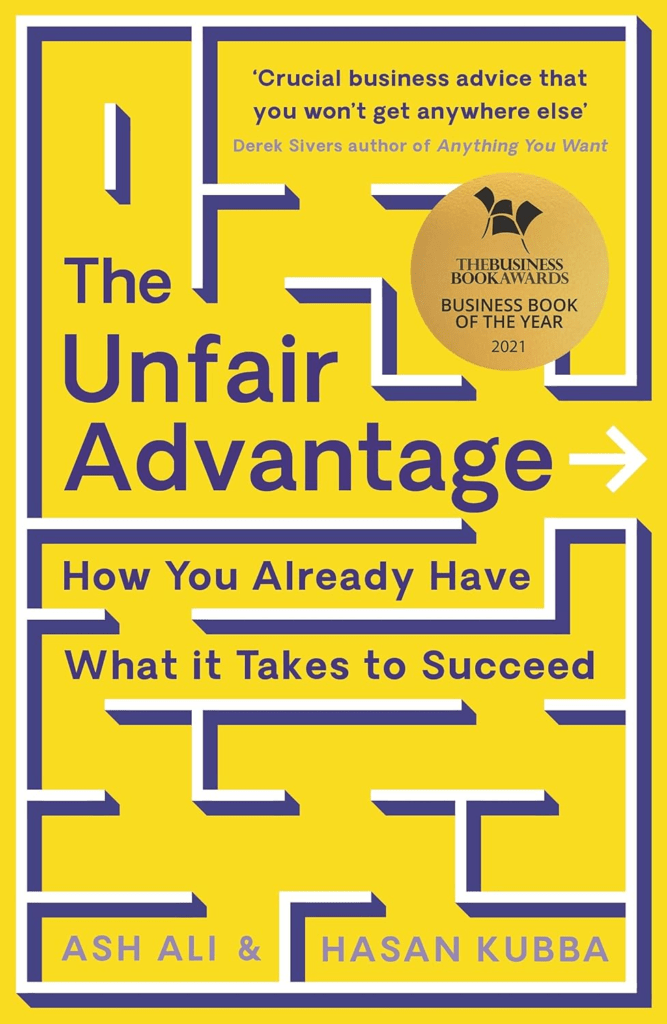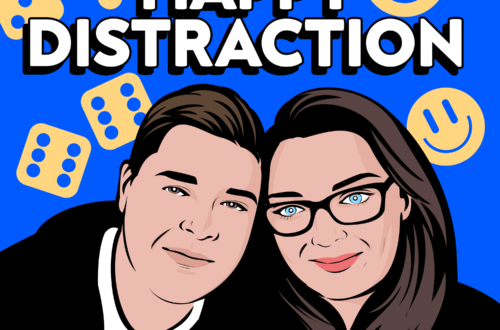
The Unfair Advantage | A Review
Title: The Unfair Advantage: How You Already Have What It Takes to Succeed
Author: Ash Ali and Hasan Kubba
Genre: Business, Entrepreneurship
Publisher: Profile Books
Release Date: January 23, 2020
Format: Hardcover, Paperback, eBook, Audiobook
Pages: 272 (first edition)
Source: Goodreads – The Unfair Advantage
Description: “The Unfair Advantage” explores the hidden factors behind startup success and offers a framework for identifying personal advantages. Authors Ash Ali and Hasan Kubba argue that everyone has unique, often overlooked advantages that can be leveraged to achieve success. They discuss the importance of elements like money, intelligence, location, education, expertise, and luck, demonstrating how these can be turned into significant benefits. The book aims to help readers recognize and use their inherent strengths to excel in business.
My Thoughts on The Unfair Advantage
I’ve just finished reading The Unfair Advantage: How you already have what it takes to succeed, and wanted to share my thoughts with you. The Unfair Advantage is written by Ash Ali & Hasan Kubba, two serial entrepreneurs from very different walks of life.
I came across this book when watching a YouTube video from Ali Abdaal, and his ‘Book Club’ series (he’s also a very inspirational guy).
Who would benefit the most from this book?
Undoubtedly the people who would benefit the most from this book would be ‘business folk’. Or an entrepreneur who wants to launch their startup. The text is full of practical tips, advice and solutions for launching your startup.
The books main focus is ‘Unfair Advantages’. The premise of this is that no matter who you are, your background, religion, colour of skin, sex, or creed (not an exhaustive list), we all have our own unique set of unfair advantages. Even if we think that all we have is a disadvantage, this may work in our favour.
An example of an unfair advantage
What I love about the book are the success stories. Ash and Hasan have packed this thing full of inspirational people and case studies, and that’s something that drew me in instantly, this is one such example:
Tristan Walker who founded Walker & Co aimed to fill an evidently large gap in the market. Tristan created products to serve people of colour, who had coarse, or curly hair and suffered from razor burn.
He had unparalleled success with his brand, and as a result, his company was acquired by Procter & Gamble (P&G), the giant behind brands such as Gilette and Braun.
Before his success, Tristan felt at a disadvantage because of the colour of his skin. This turned out in his favour because he had a unique insight (an unfair advantage). He was able to create a product and solve a problem that he faced; as a result, he had tremendous success and sold his business for an estimated $20m-$40m.
Another example
Another example that resonated with me, was the story of Will Shu. Will Shu founded Deliveroo, the food delivery company that launched with a bang.
When Deliveroo was founded in London in 2013, CEO Will Shu was the first delivery driver for the company. He provided a delivery service for the first 8-9 months of the business. The reason Will decided to do this was so that he could gain insight into how his company operates from an outside-in perspective.
Will was able to acquire business-critical knowledge and a solid understanding of the obstacles facing his business when delivering food. Will wanted to build up a picture of customer and driver experience. In doing so, Will was able to perfect his business model and make the necessary changes to improve it.
In November 2017, Deliveroo was estimated to be worth $2b. What was Will Shu’s unfair advantage? You guessed it; it was insight.
What will this book teach you?
The book is broken down into several categories, with easy to follow guide in each chapter. You can expect to learn the following:
- Practical tips on how to start your business
- How to seek mentorship
- How to pitch your business idea
- What mindset you must be in to succeed
- How not to do stuff
The MILES framework
I’m not going to delve into too much detail, because I want you to read this for yourself. However, in this section, the book teaches you how to identify your unfair advantages. It does this by categorising them into five separate segments:
- M – Money
- I – Intelligence
- L – Location & Luck
- E – Education
- S – Status
The book argues that every person has at least one unfair advantage in any category. They’re all pretty much self-explanatory, but there’s so much more detail and insight in the book, that it’s too good not to read for yourself.
My unfair advantage
I now strongly believe that everyone has an unfair advantage, even if it doesn’t appear like that from the outside.
I believe my education is my unfair advantage, as I recently graduated from university with a First Class Honours degree. In addition, I now have more than 12 years of work experience in multiple industries. Not many graduates come out of university with much experience, so I firmly believe this may provide me with a competitive edge in the right circumstances. I will preface this, though, and say that I worked damn hard, and it wasn’t handed to me on a plate.
Final thoughts
I love the motivational aspects of this book. You may think that you are a perfectly normal individual without any talents or extraordinary achievements. You may not have money, status or education, but you have something inside of you that can make you successful. You’ll just have to find what that thing is!
It was interesting to learn how young people such as Mark Zuckerberg (founder of Facebook), Evan Spiegel (founder of Snapchat) and The Collison Brothers (founders of Stripe), were able to grow their startup into a Unicorn Startup (A startup worth more than $1b). This was something I’d never heard of, but the subject matter is so exciting.
The people are real; the stories are real. You already have what it takes to succeed, so, what’s your unfair advantage?
Favourite quotes from the book
Before you go away and inevitably read the book for yourself (It’s cheap as chips right now on Amazon), here’s a selection of my favourite quotes from the book:
“An unfair advantage is a competitive upper hand, and your set of unfair advantages is unique to you. It’s more than just a unique selling point, it’s a fundamental leg-up over the competition, and sometimes it’s not one that is ‘earned’ or worked for”.
“Success in the startup world is not simply awarded to the hardest workers. It is awarded to those who develop and use their Unfair Advantages”.
“If you like and value yourself, you will have high self-esteem. You’ll come across as confident, competent, likeable, trustworthy and engaging. And, if you don’t, you need to work on liking and valuing yourself. The objection we usually hear to this is: I haven’t yet achieved much, how can I like myself? I’m unhappy with where I am in life, I am lazy, I procrastinate, I have trouble staying motivated, I indulge in self-defeating and self-sabotaging behaviour. Well, you know what? We all do. That’s the dirty secret”.
“Every disadvantage can have a corresponding advantage, and vice versa. Your circumstances and unfair advantages, whether apparently positive or negative, can be double-edged swords”.
Do you consider yourself to have an unfair advantage? Let us know in the comments below or send us a message here.
Get a sneaky peek of the book!
Note:
Please note: Some links on this blog may be affiliate links (like the one above). This means that if you click on the link and make a purchase, we may earn a commission, at no additional cost to you. Your support helps keep our podcast running. Thank you!




